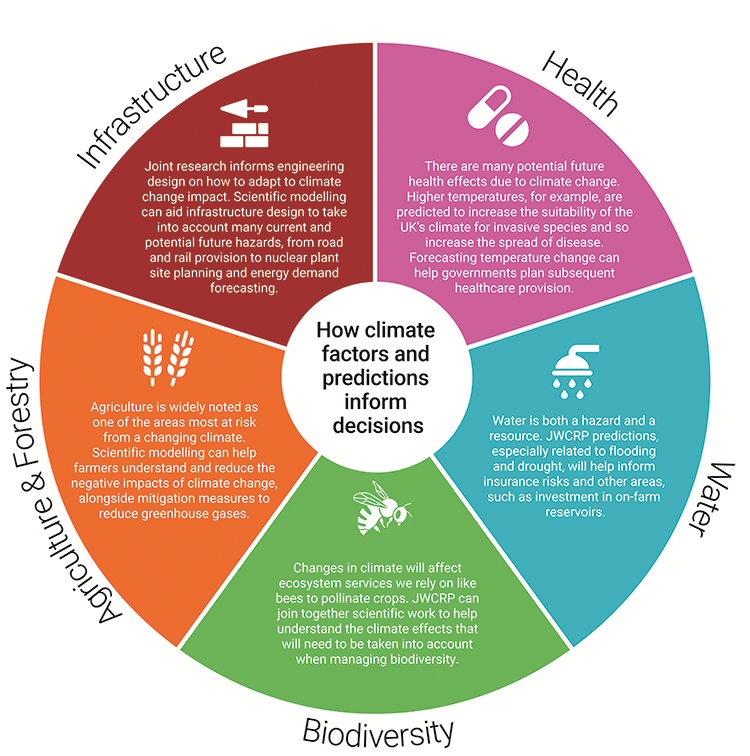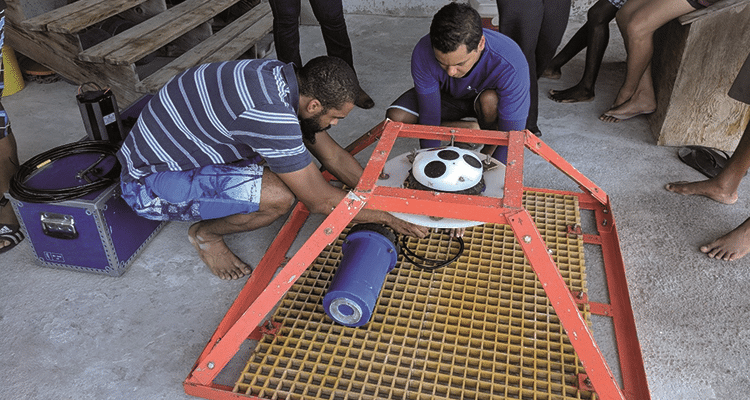Earth never stops! Find out what exciting developments are happening from around the world.

With climate change having a huge impact on the decisions and policies we make, never more has the need for collaboration been key. And at the forefront is the Joint Weather and Climate Research Programme, a groundbreaking collaboration between NERC and the Met Office.
The Joint Weather and Climate Research Programme (JWCRP) was launched in March 2009. Originally called the Joint Climate Research Programme (JCRP), the JWCRP right from the start created much closer working relationships between NERC and Met Office scientists when it came to developing improved models that focused on climate change predictions on timescales of up to centuries.
JWCRP effectively has two overarching goals. The first? To sustain and grow the UK’s national capability and research. And the second? To collaborate. Collaborate on a big scale, so, when it comes to major research initiatives and programmes, JWCRP will strive to align them, securing an effective impact of the research carried out, feeding the outcomes into the delivery of services of government, society and business.
Collaboration in action
The need: Create an integrated approach to forecasting more accurate weather predictions and the warning of natural hazards. Use this to develop more complete environmental predictions to help society make informed decisions that ultimately protect lives, livelihoods and property, facilitating social and economic prosperity.
The answer: Collaborating as JWCRP, the Met Office, UK Centre for Ecology and Hydrology, National Oceanography Centre and Plymouth Marine Laboratory began to work on the base of a coupled high-resolution probabilistic forecast system for the UK to the nearest kilometre.
The outcome: A research framework has been created to offer a unique new research tool for UK environmental science. Ongoing work will build on these foundations through Phase 2 work, delivering new research and pull-through to impact.
Fast facts: Monsoon
What? MONSooN (an almost-acronym for Met Office and NERC joint supercomputer system) delivers supercomputing infrastructure to enable collaboration between NERC and Met Office scientists. It’s a common computing platform, providing post-processing capability, fast data links and access to data archives.
When? The Monsoon service began on 1 December 2009.
Why? One word: advancement. By scientists having access to Monsoon, climate change modelling results can be shared, as well as developing joint software. All this can then help JWCRP and NERC scientists to change and inform key activities for future planning and policymaking.
How? Scientists can use Monsoon to run climate change scenario simulations based on their specific area of research, helping them to predict, change and inform.

From rising sea level impact on coastal ecosystems to exciting new ways to reduce greenhouse emissions, marine scientist Dr Judith Wolf describes her research into the effect of climate change on the world’s oceans.
Together with colleagues at the National Oceanography Centre (NOC), my team and I are part of the global scientific effort to quantify the real risks of climate change.
A key element of our work is the provision of clear, measured evidence with which policymakers can make informed decisions. For example, the NOC works closely with the Marine Climate Change Impacts Partnership (MCCIP), and is a major contributor to its influential Report Card, which provides policy advisers, decision- makers, ministers, Parliament and the devolved administrations a sharp and succinct update on how climate change is impacting UK coasts and seas.
The 2020 Report Card makes for sobering reading, and many of its messages are clear and unambiguous: global temperatures are rising and this is leading to warming seas, reduced oxygen, increased acidification and rising sea levels. These global changes are affecting the UK continental shelf and coastal waters, and are having an impact on our ecosystems.
The report also tackles more controversial questions, such as whether extreme events – storms, surges and waves – are getting more severe.
Our models and observations of UK coasts and seas show an average (mean) increase in wave heights in the Northeast Atlantic since the 1950s. However, we have not been able to directly attribute this to climate change – and attributing the cause of individual storms is even harder. Indeed, under a high-emissions scenario, there might even be an overall reduction in mean significant wave height in the North Atlantic by 2100.